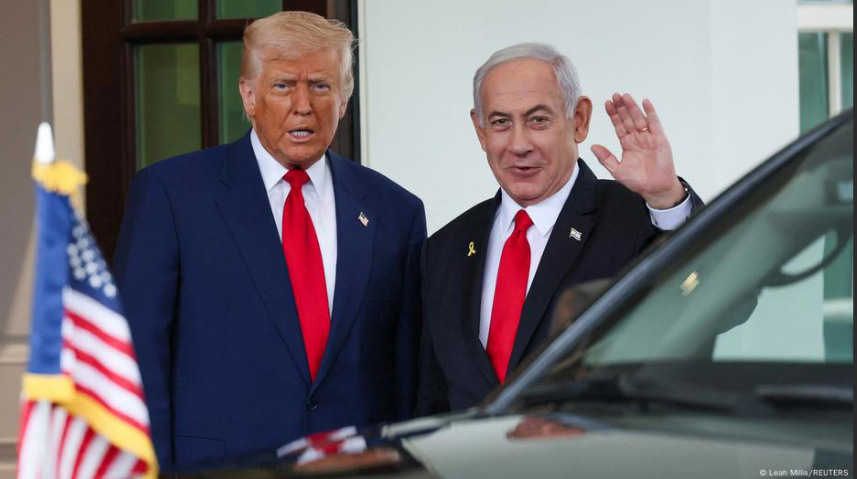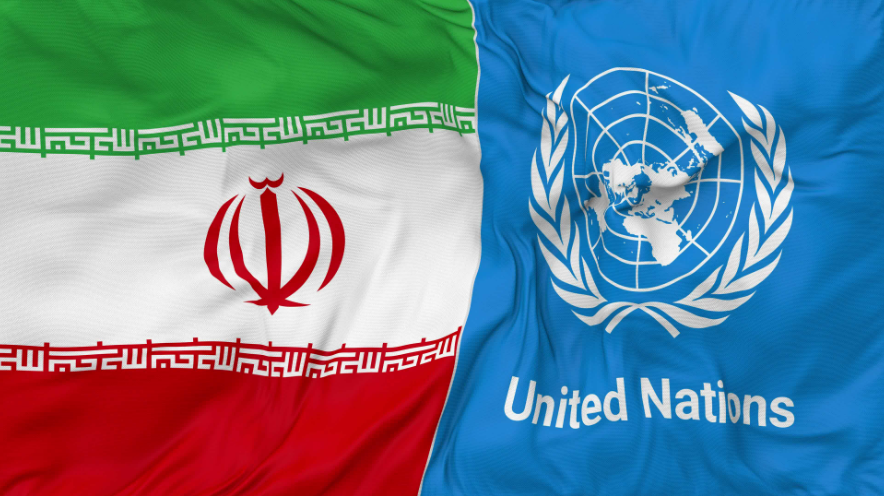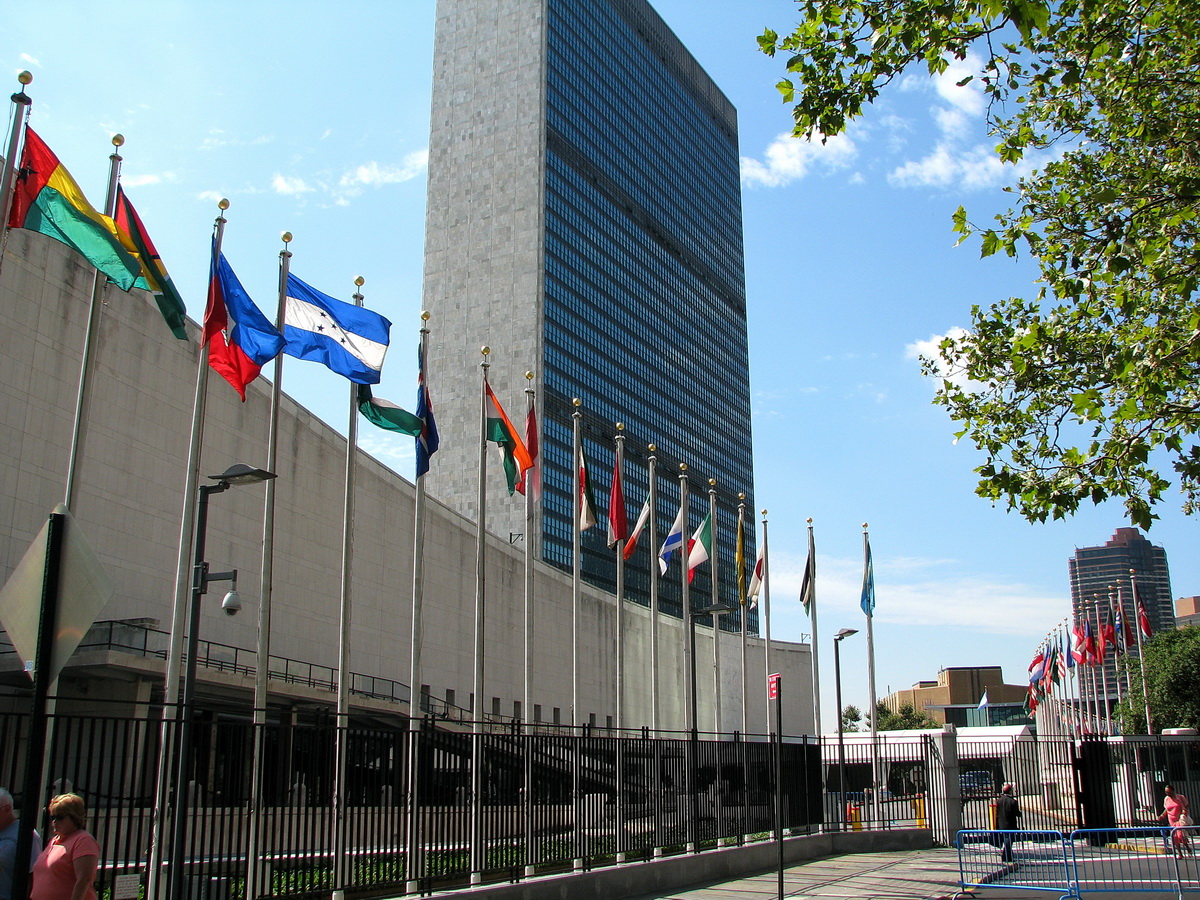By Dr. Moshe Goldfeder *
Amnesty’s Israel obsession is bigotry pure and simple. A roadmap to Amnesty’s travesty, in eight easy steps.
Earlier this month, the once-reputable, London-based human rights organization Amnesty International released a report that made international headlines accusing Israel of crimes against humanity, for supposedly maintaining a system of apartheid against the Palestinians.
The report was absurd, a combination of misleading information and outright lies, and the product of rabid anti-Semites. The bottom line was that in a modern Middle East full of dictators and terror regimes, the region’s lone democracy was once again singled out for condemnation.
Some might argue that it would be better not to dignify such bigotry with a response, but in a world of rising anti-Semitism that is demonstrably tied to anti-Zionism, knowing how to respond is important. So here’s a roadmap to Amnesty’s travesty, in eight easy steps:
1. Apartheid involves race
There are two generally accepted definitions of apartheid under international law. Per the United Nations’ 1973 International Convention on the Suppression and Punishment of the Crime of Apartheid, apartheid includes “inhumane acts committed for the purpose of establishing and maintaining domination by one racial group of persons over any other racial group of persons and systematically oppressing them.”
In 1998, the Rome Statute, which defines crimes under the jurisdiction of the International Criminal Court, codified something similar: Apartheid consists of “inhumane acts… committed in the context of an institutionalized regime of systematic oppression and domination by one racial group over any other racial group or groups and committed with the intention of maintaining that regime.”
Amnesty’s report adds a third international treaty to the conversation, the 1965 International Convention on the Elimination of All Forms of Racial Discrimination (ICERD), which does not define apartheid but simply condemns “racial segregation and apartheid.”
It is no surprise that all the definitions focus heavily on race. Apartheid originated in South Africa, where it entrenched the white minority’s widespread and systematic policies of discrimination against the black majority on that basis. In essence, then, apartheid requires a government policy that seeks to impose a racist regime, similar to the horrible system of segregation, oppression, and domination that was perpetrated in South Africa. Which brings us to the foremost problem of Amnesty’s analysis:
2. Amnesty invents legal language
Amnesty, like other human rights groups that have leveled the apartheid accusation, was faced with an immediate problem: The conflict in Israel is not, and never has been, about race. Amnesty attempts to avoid that little issue by spending several tortured pages arguing that “race” has no meaning, before introducing a brand-new definition of apartheid that includes some other elements. The reason Amnesty included the ICERD in their discussion is because that treaty expanded the definition of “racial discrimination” to include discrimination against national groups. Based on that, Amnesty makes the claim that in distinguishing between some Palestinians and Israelis, Israel commits apartheid.
Unfortunately, but not surprisingly, Amnesty does not quote the very next paragraph in the treaty, which (inconveniently for them) says: “This Convention shall not apply to distinctions, exclusions, restrictions or preferences made… between citizens and non-citizens.” The omission of that one line discredits the entire Amnesty report. Here’s how:
Amnesty defines “Palestinians” to include Arabs who are Israeli citizens; Arabs residing in the Gaza Strip and the disputed territories; and Arabs who were displaced as a result of the conflicts in 1948 and 1967. If Israel were perpetrating apartheid against “Palestinians” as a group, one would expect its “racist” policies to apply to all Palestinians. Israel, however, treats all of its citizens, including its Arab citizens, equally under the law. The differential treatment of these groups is not based on their race; they all share the exact same exact ethnic and racial identity. It is, however, based on their legal status as either citizens, residents of territories under military administration, or non-citizen foreigners. All countries in the world discriminate between their own citizens and non-citizens; if doing so constitutes apartheid, then all states are guilty of apartheid. But they aren’t, of course, and neither is Israel. The entire basis of the report is demonstrably, utterly wrong.
3. The tailor-made definition is anti-Semitic
There are any number of other reasons why Israel is not an apartheid state under any definition. But when you create a new definition of a crime against humanity so as to accuse the Jewish state alone, that is anti-Semitism. Amnesty tried to dance around that particular fact by pointing out that they had also accused Myanmar of apartheid — except that the Myanmar report used the standard international definition, without resorting to mental gymnastics to try and awkwardly expand it.
There are several other notable omissions in the 200-page document, including any acknowledgment of Israel’s security needs or right to defend itself, and any mention of Palestinian terrorism (except when using scare quotes to paraphrase or quote a few Israeli sources). In fact, there is no indication that there might be any fault on the Palestinian side at all; Amnesty just fills the space with egregious misinformation purposely spun to try and make Israel sound guilty.
There is not enough space to fully debunk the hundreds of false statements in the report, so we will focus on just a few that further highlight the fiction of the central “apartheid” claim.
4. The anonymus authors seem to have no idea how a legal system works
One piece of evidence that Amnesty repeatedly offers to support its thesis is the ongoing real estate dispute in Sheikh Jarrah, which sparked the conflict between Israel and Hamas last May. Echoing Hamas’s talking points, Amnesty describes the situation as part of Israel’s “sustained campaign to expand illegal settlements.” That case, however, does not actually involve the State of Israel at all — it is (and always has been) a private property dispute that has been going through the proper legal channels for decades. Nor is it about forcing families from their home; just owners suing tenants whose leases have expired, or in a few cases, suing squatters with no tenancy rights at all.
Israel’s High Court recently offered a compromise solution that included protected tenant status for the Palestinian families. That is exactly how the rule of law is supposed to work in a democratic, non-discriminatory society. No one would care if it was Jewish owners suing Jewish tenants, or Palestinian owners suing Jewish tenants. Amnesty appears to be criticizing Israel for not legislatively overturning a legitimate court decision based on the ethnicity of the parties — and calling that apartheid.
5. The anonymous authors also seem unaware of how logic itself works
Some of the false accusations Amnesty makes would be amusing in any other context: For example, the authors write that while “Palestinians largely refuse to join the Israeli army for national and political reasons, the exemption of Palestinian citizens of Israel from military service has resulted in their discriminatory exclusion from substantial economic benefits and opportunities guaranteed under Israeli law to those who have completed military service.”
To be clear, Amnesty is now faulting Israel for not giving army-veteran benefits to non-army-veterans, and calling this an example of apartheid. There are multiple problems with this statement, but here are two: First, an increasing number of Israeli Arabs are volunteering for the army, and do get those same advantages. And second, the majority of chareidi Jews, who also choose not to join the army, also do not get those benefits, proving that this has nothing at all to do with race, religion, or national origin, and everything to do with service.
6. Did the anonymous authors do any research at all?
The report also says that while Arab citizens in Israel do have more rights than non-citizens, they are nonetheless denied the right to participate politically. It’s unclear if Amnesty really believes this to be true, or merely thinks its readers are unintelligent, or ill-informed.
For the record, all Israeli Arab citizens do have full and equal voting rights — in fact, Israel is one of the few places in the Middle East where Arab women have suffrage. In 2020, Arab politicians obtained 15 out of 120 seats in the Knesset, making them the third-most-powerful bloc in the entire national legislature. The kingmaker of the current governing coalition was none other than Mansour Abbas, the head of the Islamist Ra’am party.
Abbas also serves as deputy speaker of the Knesset, and sits in the Cabinet along with another Arab minister. Several Arabs have been appointed to Israel’s High Court, and indeed the day before the Amnesty report was published, Osila Abu Assad became the first female Arab judge to be elevated to an Israeli district court, one of six Arab Israelis appointed to important positions in the judiciary that week alone. None of this was mentioned by Amnesty, because it makes a mockery of their attempts to badmouth Israel. Which attempts are not surprising, because…\
7. Amnesty has long had problematic ties to anti-Semitism
Despite their claims of impartiality, this report is not Amnesty’s first foray into anti-Semitism. A 2009 investigation found that a number of key figures on the organization’s staff were Palestinian propagandists, some of whom had expressed open support for terrorist groups. In 2010, the head of its Finland branch called Israel a “scum state,” while its UK campaign manager has likened Israel to ISIS, and has been condemned for his attacks on Jewish Members of Parliament.
Back in 2014, Amnesty accused Israel of war crimes for defending itself against Hamas, and at their annual conference in 2015, amid a global rise in anti-Semitic violence, voted down a motion to condemn anti-Semitism — the only resolution so defeated. In 2019 Amnesty rushed to condemn Israel for bombing a human rights office in Gaza, until they realized that the rocket was actually misfired by a Palestinian terror group. Just last April, its current secretary-general was forced to apologize for a bizarre tweet accusing Israel of murdering Arafat.
Amnesty’s organizational history of anti-Semitic bias does not necessarily mean that every report is anti-Semitic — but in this case, it definitely is.
8. Amnesty’s report is in many ways definitionally anti-Semitic
The report demonizes Israel by, among other things: elevating the false and dangerous narrative of Jews as occupiers who displaced the “rightful owners” of the land; promoting outright blood libels about alleged systematic killings that simply never happened; and using classic anti-Semitic tropes like “Jewish domination.”
It delegitimizes the Jewish People’s claim to their ancestral homeland by negating the history of the region; denying their lawful right to be there, and to be safe from attack; and by insisting that the very idea of a Jewish state is somehow untenable and racist.
It also applies a series of blatant double standards to the Jewish state. Aside from introducing a new “gotcha” definition of apartheid, on a micro level, Israel is deemed racist for standard political fare, like having a Law of Return, while Amnesty has no problem with similar laws in other countries including Mexico, Ireland, Finland, Greece, Poland, Germany, Italy, and Denmark. On a macro level, Israel is once again forced to defend itself in a court of public opinion in which the country is guilty until proven innocent, while Amnesty has no time to worry about China, Syria, Iran, and many other countries abusing human rights.
Study after study has shown that the kind of inflammatory rhetoric that the Amnesty report encourages can also lead directly to violence against innocent Jewish people.
Thankfully, US lawmakers on both sides of the aisle have already denounced the report as shameful and called for its retraction. Too bad the Amnesty folks are too cocooned in their bubble of Israel-hatred to feel shame.
*) Rabbi Dr. Moshe (Mark) Goldfeder is an international lawyer and director of the National Jewish Advocacy Center.
This op-ed originally featured in Mishpacha, Issue 898 on February 8, 2022.



